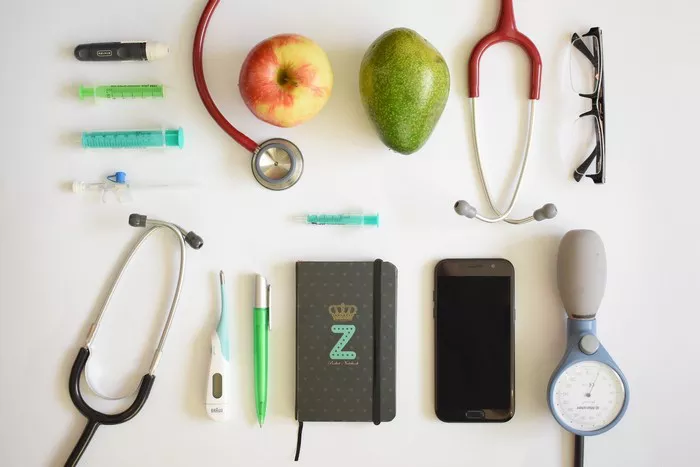In a world dominated by fast-paced lifestyles and sedentary routines, the quest for effective weight loss is a prevalent concern for many men. While exercise plays a crucial role in shedding those extra pounds, the significance of a well-balanced and nutrient-rich diet cannot be overstated. In this article, we delve into the intricacies of what men should eat to lose weight, exploring the dietary choices that not only aid in weight management but also contribute to overall health and well-being.
The Foundation: A Balanced Diet
Embarking on a weight loss journey requires a fundamental understanding of the principles of a balanced diet. A balanced diet comprises the right proportions of macronutrients – proteins, carbohydrates, and fats – along with an array of micronutrients such as vitamins and minerals. Striking the right balance ensures that the body receives the necessary nutrients to function optimally, promoting weight loss in a sustainable manner.
1. Protein-Rich Foods
Proteins are the building blocks of a healthy diet, and they play a pivotal role in weight loss. Including lean protein sources in your meals helps maintain muscle mass while aiding in fat loss. Opt for sources like:
Lean meats: Chicken, turkey, and lean cuts of beef are excellent sources of protein without excessive fat.
Fish: Fatty fish like salmon and mackerel provide omega-3 fatty acids, promoting heart health and supporting weight loss.
Plant-based proteins: Legumes, tofu, and edamame are valuable options for those adopting a vegetarian or vegan diet.
2. High-Fiber Foods
Fiber is renowned for its ability to promote satiety and regulate blood sugar levels. Incorporating high-fiber foods into your diet can help control cravings and reduce overall calorie intake. Opt for:
Whole grains: Brown rice, quinoa, and whole wheat products are rich in fiber and provide sustained energy.
Vegetables: Broccoli, spinach, and kale are not only nutrient-dense but also high in fiber.
Fruits: Berries, apples, and pears offer a sweet and fiber-rich alternative to processed snacks.
3. Healthy Fats
Contrary to popular belief, not all fats are detrimental to weight loss. Healthy fats are essential for various bodily functions and can contribute to a feeling of fullness. Include sources like:
Avocado: Packed with monounsaturated fats, avocados are a nutritious addition to salads or as a spread.
Nuts and seeds: Almonds, walnuts, chia seeds, and flaxseeds are rich in omega-3 fatty acids and provide a satisfying crunch.
Olive oil: A staple of the Mediterranean diet, olive oil is a heart-healthy fat suitable for cooking or dressing salads.
Precision in Portion Control
While the quality of food is crucial, so is the quantity. Portion control is a key aspect of any successful weight loss plan. Understanding appropriate serving sizes helps prevent overeating and allows for a more accurate calculation of calorie intake. Consider using smaller plates, measuring portions, and paying attention to hunger and fullness cues to master the art of portion control.
Strategic Meal Timing
Beyond the content of meals, the timing of when you eat can influence weight loss. Adopting a strategic approach to meal timing can optimize metabolism and enhance the body’s ability to burn calories. Consider these tips:
1. Breakfast as a Priority
Starting the day with a nutritious breakfast kickstarts metabolism and prevents excessive hunger later on. Opt for a breakfast rich in protein and fiber, such as a vegetable omelet or Greek yogurt with berries.
2. Balanced Meals Throughout the Day
Distribute your calorie intake across multiple meals to maintain energy levels and prevent overeating during one large meal. Aim for three balanced meals and incorporate healthy snacks if needed.
3. Mindful Eating in the Evening
Be mindful of late-night snacking, as consuming large meals close to bedtime can impede weight loss. Opt for lighter, nutrient-dense options if hunger strikes in the evening.
See Also:What Men Should Eat to Lose Belly Fat?
Hydration: The Unsung Hero
Often overlooked, proper hydration is a fundamental component of any weight loss plan. Water not only supports various bodily functions but also helps control appetite. Drinking water before meals can contribute to a feeling of fullness, reducing the likelihood of overeating.
Exercise Synergy
While diet forms the foundation of weight loss, the synergy between diet and exercise is unparalleled. Engaging in regular physical activity not only burns calories but also enhances overall well-being. Incorporate a mix of cardiovascular exercises, strength training, and flexibility workouts into your routine for comprehensive benefits.
Individualized Approaches
It’s important to recognize that there is no one-size-fits-all solution to weight loss. Individual factors such as metabolism, activity level, and personal preferences play a significant role. Consulting with a registered dietitian or nutritionist can provide personalized guidance, ensuring that your dietary choices align with your specific needs and goals.
Conclusion
Achieving and maintaining a healthy weight involves a multifaceted approach, with diet playing a central role. By focusing on a balanced diet rich in lean proteins, high-fiber foods, and healthy fats, coupled with strategic portion control and mindful eating habits, men can embark on a sustainable weight loss journey. Remember, the key is not just shedding pounds but adopting a lifestyle that promotes long-term health and well-being.
Related Topics:
Which Herb Is Best for Prostate Health?
What Are the Essential Supplements for Men’s Health?
10 Natural Prostate Shrinking Supplements


